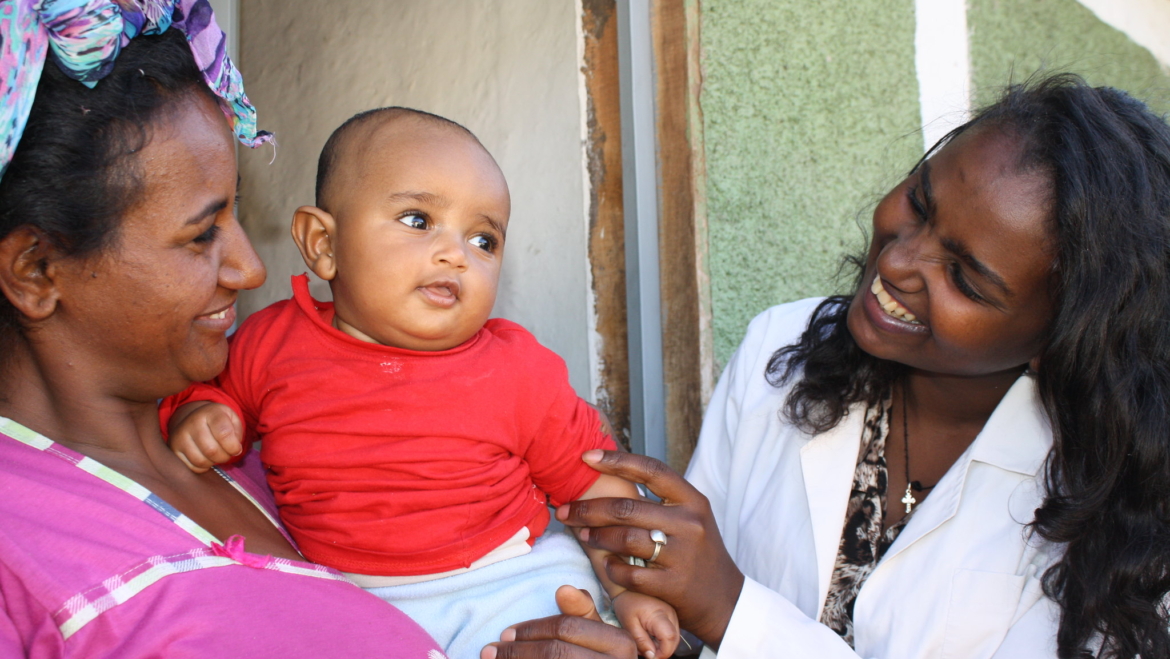Even though global gender equity is a core tenant of the United Nations (UN) charter drafted in 1945, no country in the world has yet established equal rights, liberties, and opportunity between men and women.
An estimated 2.5 billion women and girls live in countries with laws that discriminate against women, and women have less than 30% representation in legislative bodies globally. More than half a billion girls over the age of 15 are still illiterate and over 50% of female laborers worldwide work in the informal economy, meaning they lack social protections and earn on average lower wages than their male counterparts.
COVID-19 amplifies these pre-existing barriers for women, contributing to deteriorating levels of equity around the world. The Biden-Harris administration put forth that tackling this backsliding in gender equity is a moral and strategic imperative, declaring in the new National Strategy on Gender Equity and Equality that “supporting women’s and girls’ full participation in social, economic, civic, and political life—and ensuring they are represented at the tables where decisions are made—is essential to progress in every other area and a precondition to advancing strong and sustainable democracies.” Among the new priorities for advancing gender equity globally is the goal to advance equality in the law, diversity in leadership and decision-making roles, and female participation and leadership in climate change mitigation.
As a women-owned small business drawing on our in-house gender expertise, Cloudburst has long worked with women and their communities to advance equity and leadership in property rights and natural resource management. In all our work, Cloudburst strives to ensure estimation of salient social issues by using research or stakeholder engagement strategies that appropriately engage women and youth. Cloudburst’s commitment to advancing gender equity often includes methodologies and approaches for oversampling women, ensuring women and youth are active participants in focus group discussions, and ensuring research models focus on gendered governance participation, labor market participation and pay/wage gaps, gender-based violence, trafficking in persons, or intra-household gender dynamics.
For example, in Liberia, Cloudburst conducted a rigorous evaluation of the United States Agency for International Development’s (USAID’s) Community Land Protection Program, which works to protect community land rights and advance women’s agency in community meetings about land rights. Cloudburst strove to conduct a gender-sensitive evaluation by sending out a survey to female heads of households, employing a gender-balanced field team, and planning for a sample size of women sufficient to produce gender-disaggregated results. The evaluation findings helped the project team understand how their program impacted women’s empowerment and encouraged positive changes to land reform that promote greater gender equity in the region.
In Afar, Ethiopia, Cloudburst worked with the USAID-funded Land Administration to Nurture Development program to collect household survey data on resource management, land condition, tenure security, and governance. We spoke specifically with female heads of households and the wives of male heads of households to gain insight into the inequalities between men and women. At the end of the study, Cloudburst established that high-quality customary governance is associated with higher levels of women’s empowerment in the region. This finding helps USAID plan activities that will further improve women’s decision-making power and influence in their communities.
In Zambia, Cloudburst completed an impact evaluation of USAID’s Tenure and Global Climate Change Activity to understand whether the activity improved tenure security and led to an increase in sustainable agroforestry in the region.
Knowing that female heads of households are rare in Zambia and make roughly one-third the income of their male counterparts, the project specifically targeted women to participate in the intervention and collected gender-disaggregated data. The evaluation found that the project improved perceptions of tenure security and agroforestry uptake among exclusively female farmers, indicating that in some cases, women may play a key role in promoting sustainable resource management. These findings will help USAID plan future programs to combat the effects of climate change in the region.
As advocates and allies of women advancing an equity agenda across the globe, Cloudburst stands by our commitment to reduce barriers faced by those who belong to underserved and historically marginalized communities that have long been denied full opportunity: women and girls of color, LGBTQIA+ people, people with disabilities, and all of those whose lives are affected by persistent poverty and inequality.

